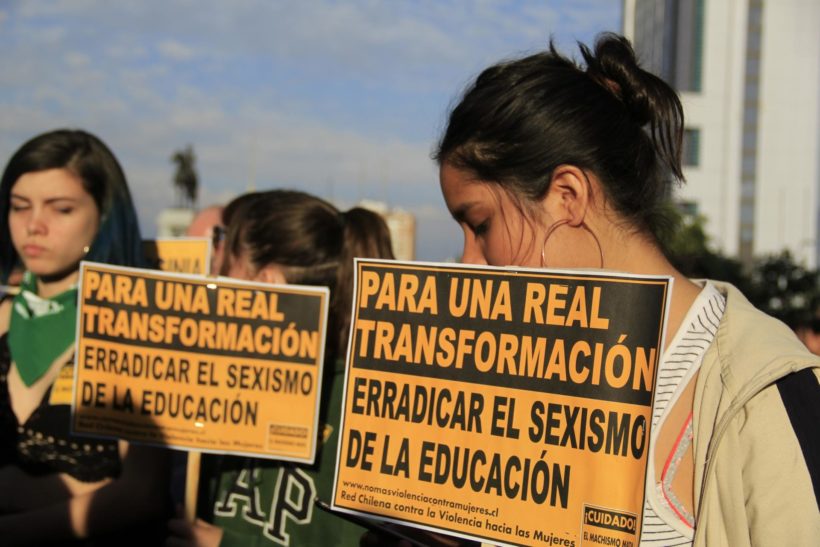These days we are exposed by TV, the media and social networks to the violence of war. Other times it is a femicide, as in the case of Ámbar Cornejo in 2020, or a contract killing as is becoming common in Chile. These are cases of high public relevance, but the violence that millions of people experience on a daily basis remains invisible.
Violence, whatever its cause, severely affects victims by impairing their ability to live a full life and find happiness. Some observe violence from a comfortable distance and cynically justify violence as a characteristic of being human. This is not the case. Violence can be prevented and doing so is better than suffering the consequences.
In the prevention of violence, the school has an irreplaceable responsibility. It is at school that the process of socialisation beyond the family begins. It is at school that the family culture expressed in behaviours, values, prejudices and rules of coexistence is confronted with other family structures. When there are no tools to process these differences, the result is bad coexistence or physical and psychological violence.
There is a risk that in schools, through teachers and principals, they are not able to realise that they themselves are transmitting a culture of violence, because it has been absolutely normalised in their lives. Violence against women or gender-based violence is part of a culture that normalises it and therefore makes it invisible.
In Fundación Semilla’s work, we find well-intentioned statements from school communities that condemn violence against women, intimate partner violence and gender-based violence, but they do not know how to put these principles into practice because, without realising it, they are reproducing behaviours that are absolutely normalised.
Although there are many common aspects in the prevention of gender-based violence, it is not the same as other forms of violence, depending on the culture in which one is inserted. It is not the same in rural areas as in the city, or according to ethnicity, country of origin or religion. Each prevention programme must be adapted to the environment in which it will be developed in order to advance solutions.
This is the case with the programmes developed by the Chilean Ministry of Education in a centralised manner, which do not take into account the particularities of each territory and, moreover, are focused on students and not on the training of education professionals. Little is achieved in violence prevention at the student level if the adult world does not change, as it is not only a matter of teaching through texts, but also through daily example.
Reducing violence is possible, but it cannot be achieved immediately. Doing so means a benefit for millions of people and, above all, for women who experience it on a daily basis and see their lives cut short by their perpetrators. There is no doubt that preventing all types of violence is better than suffering its consequences, but it depends on the political will to make it a reality in all schools in Chile.






